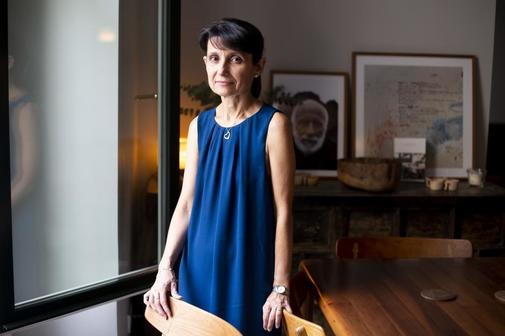- Bioscience. They manage to reverse aging
- Aubrey de Gray. "We can stop aging with a single injection"
The idea of intervening and modulating aging has inspired the 25 years of Ana María Cuervo's professional career, which has earned her free recognition as one of the greatest international eminences in this field. The researcher has just landed in Spain to participate in the first major congress on science and aging held in Europe: Gerociencia , organized by the Gadea Foundation.
The objective of the investigation, he warns, is not to be able to "live forever", but to have the possibility of acting so that the "ailments associated with age do not begin at age 50 or 60, but at age 90" .
This brilliant scientist began studying the role of lysosomes (some cellular compartments that digest worn proteins and other damaged cellular components) in his doctoral thesis, after graduating in Medicine, and he got so hooked that two decades later he did not even consider changing his field of work . «There are many diseases that appear as we get older. The idea is to find out if we can do something so that our body at the age of 80 stays the closest to that of the 20 ». A revolution that is getting closer to becoming a reality.
Thanks to the work of the research group that Cuervo leads at the Albert Einstein College of Medicine in New York, one of the great factors involved in the aging process has been deepened, for example. It involves the mechanisms of cell cleaning and recycling and the effect of their loss of function with age.
«We know that these routes are interconnected . That is, if you have less energy, the cells will also clean less and then your immune response will be worse. This is important because "it means that acting on one or two of these processes can repair others, which contributes to the fight against aging."
Experimentally, by modulating some of these pathways, it has been achieved that «at least 10 animal models lived longer and were healthier. We have gone from being a field that was not paying much attention to being one of the most leading in which transcendental discoveries are being made and cutting-edge technology is being integrated ».
Recently, Cuervo says, "a study published in the journal Aging Cell first pointed out how a treatment for diabetes (metformin) had been able to reverse the cell's chronological clock ." It was a small essay, "but in people," he emphasizes.
"Every time we are going to see more steps of this kind," says the researcher, who emphasizes that the objective of the research is "to increase the years of disease-free life", not to get rid of death, as some propose.
« Do not trust charlatans. His speeches based on promises make me very nervous. Nor should we believe in products that are sold against aging. They are not scientifically proven. We have to demonstrate what we are doing, always with scientific rigor. There is a lot of deception in this field, ”he warns.
What is being studied seriously, he says, is the way to intervene in the aging processes to compress the time of illness and suffering. In that sense, Ana María Cuervo continues to study neurodegenerative diseases in her laboratory to improve the quality of life of the global population. «Once you reach 85, you have almost 50% chance of having Alzheimer's . As a researcher, losing your mind and forgetting everything we know and have learned, and stop contributing to the progress scares me a lot ».
While the investigation continues, Ana María assures that there are many things at the level of life habits that can help keep away the evils of old age: « What our grandmother always told us: sleep more and not eat between meals , for example it's a good option". Or try to reduce the consumption of refined sugars. "It has been proven that this helps to improve disease-free time in both animal models and people."
If you look back, Ana María Cuervo does not hesitate to point out that she was lucky enough to start her professional career with Erwin Kneckt at the Institute of Cytological Research in Valencia and conduct postdoctoral research with Fred Dice at Tufts University in Boston, «the best mentors one can imagine, who taught me to have a collaborative spirit, not competitiveness.
Upon completion, he established his own research team at the Albert Einstein College of Medicine and since then, he has not stopped working around aging. Currently, she is Professor Robert and Renee Belfer for the study of neurodegenerative diseases, she has received more than 20 awards of international prestige , she is a professor of Molecular Biology and is part of the NIA Scientific Advisory Panel and the Advisory Council of the Deputy Director of the National Institutes of Health (NIH) of the United States.
One of the best nights of his life, remember, was to be able to attend the award of the Nobel Prize to the Japanese researcher Yoshinori Ohsumi, one of the discoverers of the organism's recycling system. «Suddenly, this field of research became a star». And it has already begun to bear fruit.
According to the criteria of The Trust Project
Know more- Science and Health
Health AlertThe Prosecutor's Office of Seville opens an investigation on the listeriosis outbreak and meat with white label
Health The dog, the best friend of the heart
Casa RealA operation to save the risks of heart attack

